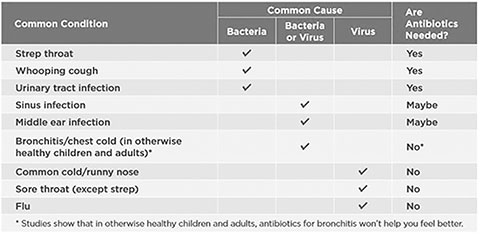By ERICA ELKINS-LITTLE, DNP, RN
Special to Atmore News
Antibiotics make you feel better when your illness is caused by bacteria. Not all illnesses or infections are caused by bacteria. Sometimes an illness may be caused by a virus. In that case, an antibiotic is not recommended and would not help you feel better.
Why won’t my doctor give me an antibiotic anyway to see if it makes me feel better?
The answer is Antibiotic Resistance.
An antibiotic treats infection caused by bacteria. They either kill the bacteria or make it difficult for the bacteria to grow and multiply. Overuse and misuse of antibiotics can cause the bacteria to become resistant. After the bacteria is killed by the antibiotic, the resistant bacteria are left to grow and multiply. The hard-to-treat bacteria can be spread to other people. They are often more difficult to kill, more expensive to treat, and can lead to death. Yearly, two million people in the United States are infected with an antibiotic resistant organism. As a result of that infection, 23,000 people die each year.
To avoid overuse, your physician will not prescribe an antibiotic for your infection if it is not bacterial. An antibiotic is not effective on infections caused by a virus. Some common viral infections include colds, flu, most sore throats, most coughs and bronchitis, many sinus infections, and many ear infections.
To avoid misuse, there are a few things you can do. Take your antibiotics the right way.
1. Take an antibiotic only if your doctor prescribed it for you. Do not take an old antibiotic, even if you believe it is for the same illness you have had in the past.
2. Do not take someone else’s antibiotic. Taking antibiotics when they are not needed increases your risk of getting an infection that is resistant to antibiotics.
3. Take your prescription of antibiotics as directed on the bottle or package and do not skip doses. Do not save the antibiotic for future use. Incorrect use contributes to the risk of developing a resistant bacteria infection.
When an antibiotic is not needed
If your illness is caused by a virus, your doctor may prescribe an antiviral to help you get well more quickly. Take the antiviral as it is prescribed on the bottle or package and do not share with others who may be sick also.
Treat your symptoms. Medications to reduce pain and fever may be needed. Saline nasal spray and warm compresses may relieve some problems you are having.
Ask your doctor or pharmacist what over-the-counter remedies they recommend. Your local pharmacist is a wonderful resource – a very knowledgeable resource.
How to avoid getting sick
1. Wash your hands thoroughly and often. By washing your hands, you remove germs that can get you sick. You also are removing germs that you may spread to others making them sick.
2. Cover your cough and sneeze into your sleeve. When you cough or sneeze, you are spreading germs to others. Coughing and sneezing into your sleeve helps keep the germs off your hands and may cut down on spreading the germs.
3. Ask your doctor about what vaccines are available for you to keep you well. Ask your doctor about the influenza (flu) vaccine and the pneumonia vaccine.
If you do become ill, see your doctor or healthcare provider and follow their instructions. Take medications as prescribed. Do not insist your doctor give you an antibiotic. They are trained to determine which medications are best for your illness or infection.
Prevention is the key to wellness. Follow the steps above to keep you and your loved ones healthy this season.

Statistics and information in this article were obtained from the Centers for Disease Control and Prevention (CDC) website.
